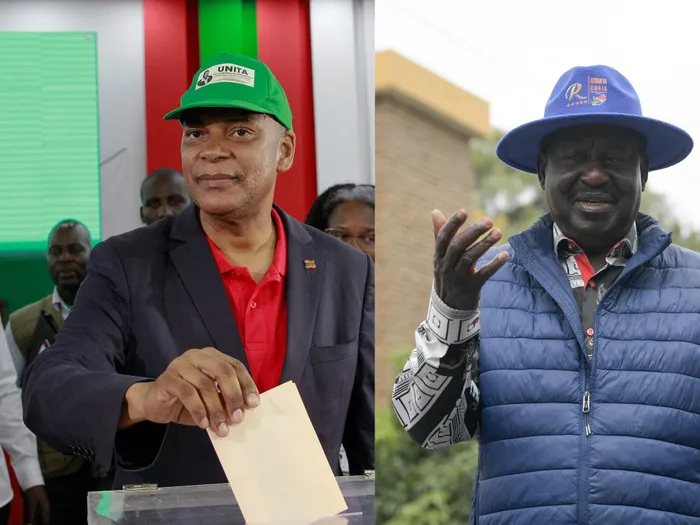Growing pains of maturing democracies in Africa

By Chad Williams
Africa’s democracy is maturing; that said, with any growth, there are going to be growing pains. Recent elections in Kenya and Angola have shown that Africa is capable of holding peaceful elections with timeous updates on results, processes and transparency.
The electorate is aware, they know what they want. As rising commodity prices continue to choke citizens and food and petrol costs are exacerbated by global events, African leaders need to tread carefully if they intend to “woo” an already battered electorate who are tired of promises of old.
Despite court action from opposition leaders in Kenya contesting the outcome of the August 9 poll, as well as the denouncing of results by Angola’s main opposition this week after the MPLA narrowly edged out the opposition in Angola, what we’ve seen in both Kenya and Angola in the last few weeks is that elections are not the elections of the past.
Elections are evolving. With the advent of social media, giving citizens closer access to political leaders and their manifestos at a click of a button, voters have sent out a clear message: they want leaders to improve their livelihoods and they don’t want to wait 50 years to see the change.
By accepting the outcome of the electorate, leaders show that they have trust in the people and what they want. At the end of the day, democracy is democracy. Observer missions played a critical role in the outcome and atmosphere in both countries, especially pre and post elections.
Young people, who necessarily don’t remember the pain of the past, are voting because they are battling to find jobs now and are struggling to fill their tanks with petrol. These issues are now major issues. Angola With that said, half of Angolans live in poverty, and more than half of under-25s are unemployed. Is the bloodshed and violence usually associated with African polls a thing of the past? What we are witnessing is a change in the Africa electorate.
Africa’s youth are a key constituency not to be overlooked. For example, in Angola this past election was the first in which citizens born after the war are old enough to vote. To this generation, the old slurs against opposition parties are meaningless.
Even in traditional MPLA strongholds such as Malanje in north-central Angola, the party has battled to mobilise support at campaign rallies. In Angola, more than half the population is under 30. Many voters were born after the end of the war in 2002.
This week, Unita leader Adalberto Costa Júnior has rejected the results, citing discrepancies between the commission’s count and the main opposition coalition’s own tally. Analysts fear any dispute could ignite mass street protests and possible violence among a poor and frustrated youth who voted for Costa Junior.
He promised more jobs for the young, in a country where half of under-25s are jobless and few feel the benefit of its vast oil wealth. Local observers said the elections in Kenya and Angola were partially free and fair without incident.
International observers from the Southern African Development Community said the vote was calm and peaceful. But the head of the Community of Portuguese Language Countries (CPLP) election observers’ mission, Jorge Carlos Fonseca, a former president of Cape Verde, told CNN Portugal that the mission’s initial assessment did not say the vote was fair and free.
In Angola, fewer than half of Angola’s registered voters turned out for elections. But Unita, for the first time, will have deprived the MPLA of the two-thirds majority needed to pass major reforms and the ruling party will instead need the backing of other lawmakers, which shows that big political players on the continent such as the ANC and MPLA, are slowly losing their grip on power.
Kenya Raila Odinga, who came second in Kenya’s presidential election, has gone to court to challenge the result which ushered in William Ruto as Kenya’s president. All eyes will be on Kenya’s Supreme Court of appeal on how it handles this contentious issue, bearing in mind what happened in Kenya after the courts got involved in election queries.
The 2007–2008 Kenyan crisis was a violent political, economic and humanitarian crisis that erupted in Kenya after former president Mwai Kibaki was declared the winner of the presidential election held on December 27, 2007.
Supporters of Kibaki’s main opponent in that election, Raila Odinga of the Orange Democratic Movement, alleged electoral manipulation. This position was widely confirmed by international observers, as being perpetrated by both parties in the election.
Even the head of the electoral commission himself confirmed that he did not know who had won the elections,despite announcing the incumbent as president.
Meanwhile, political analysts believe that discontent over the ongoing issues of inequality and unemployment is likely to be sharpened in the wake of election results that lack legitimacy.
Williams is a multi-media journalist with the African News Agency (ANA).